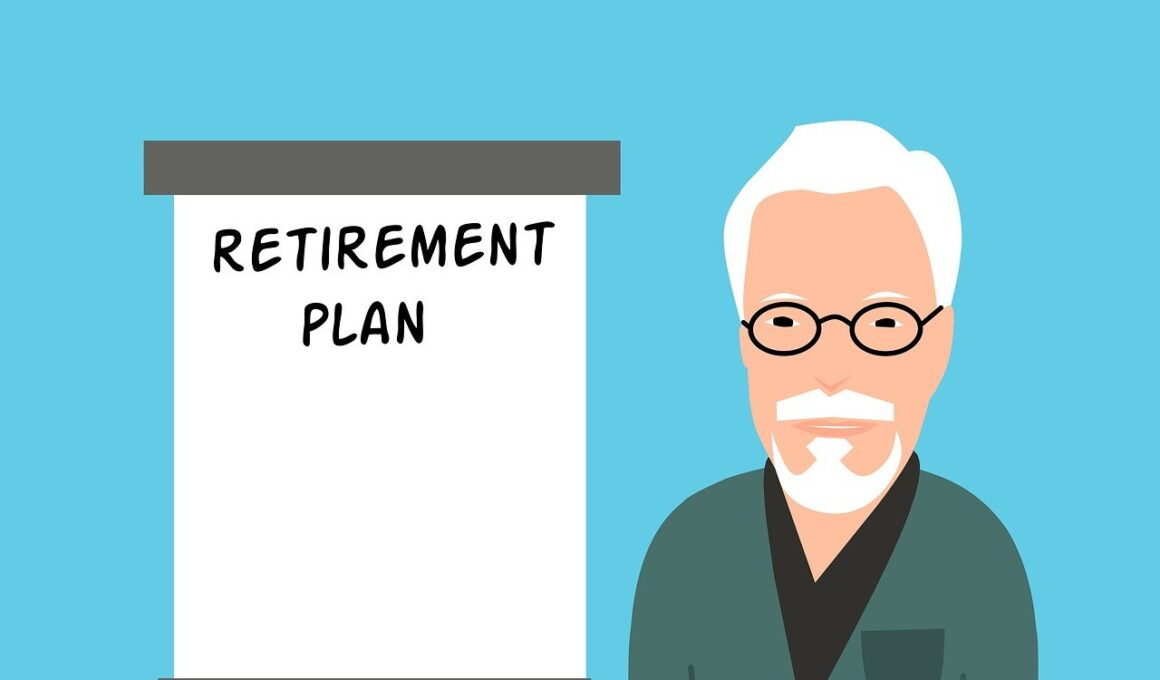The Importance of Reviewing and Updating Your Estate Plan Regularly
Estate planning is a critical part of preparing for retirement, ensuring that your assets are distributed according to your wishes. Many retirees invest numerous hours and resources creating a solid estate plan, yet they often overlook the necessity of regular reviews and updates. Life is unpredictable; events such as marriage, divorce, the birth of a child or grandchild, or the death of a beneficiary necessitate a thorough examination of your plan. Furthermore, legislative changes can also alter the validity of existing estate plans. It is essential to ensure that your documents reflect your current wishes and accurately represent your family hierarchy. A thoughtfully crafted estate plan can provide peace of mind, knowing your loved ones will be cared for. Regularly scheduled reviews help identify any inconsistencies that may arise over time, helping manage your estate efficiently. Professionals recommend revisiting your estate plan every three to five years to address any changes in your life or legislation. This proactive approach can significantly ease the complexities faced by your beneficiaries. In short, updating your estate plan is a necessary step to ensure that your retirement legacy is preserved.
Comprehensive estate planning includes various aspects such as wills, trusts, and powers of attorney. Wills specify how your assets will be distributed, while trusts may offer more control over your assets even after your passing. Additionally, assigning a power of attorney designates an individual to make financial or health-related decisions on your behalf. Regular updates ensure that your designated agents and beneficiaries remain relevant according to your preferences. A situation may arise where a chosen executor or trustee could become unable to fulfill their role due to personal circumstances or loss. Communicating with your family about these changes can help avoid conflicts later. Understanding current tax laws and implications due to changes in your estate plan is critical as well. Tax laws affecting inheritance or estate taxes may shift, impacting how much your heirs receive. Staying informed will enable you to make adjustments that minimize tax burdens. Consulting with a financial advisor or estate planning attorney can provide valuable insights into necessary updates. Together, they can help navigate regulatory changes, ensuring that your estate plan remains compliant and optimized for your beneficiaries’ benefit, ultimately securing their financial future.
Engaging with Professional Help
Having a professional guide through the estate planning process can simplify the complexities involved. Estate planning attorneys can help identify gaps in your documents, ensuring that all relevant legal and tax considerations are met. They can also highlight best practices for structuring your estate plan, such as that all legal terminologies and requirements are correctly composed. Additionally, financial advisors can look at the big picture to ensure that any changes align with your overall retirement and investment strategy. They will take into account your current financial circumstances, assets, and future needs when suggesting updates. Furthermore, younger generations, including grandchildren, may express new needs or preferences as they grow, which may influence your decisions. Regular communication with these family members can keep you informed about their evolving concerns and life changes. Always consider your unique family dynamics when making changes to your estate plan. Personal relationships can significantly impact how assets are received, and understanding these dynamics can prevent future disputes and grievances. By working closely with professionals and family, your estate plan becomes a well-rounded document that genuinely reflects your desired legacy.
Technology has made reviewing and updating estate plans more accessible and efficient than ever. Online platforms provide easy access for retirees to edit their estate plan documents, ensuring they are kept up-to-date with current circumstances. Digital resources also help streamline the process by allowing users to store vital documents securely, providing peace of mind that critical information is always available. However, it is essential to ensure that any digital solutions are compliant with local laws and regulations, as digital estate planning is subject to varying requirements across jurisdictions. Therefore, if you choose to use technology, working alongside legal professionals to validate changes is crucial. Additionally, electronic communications can foster more open conversations between family members regarding estate plans, enabling a collaborative approach. Many families have found that discussing their plans openly has allowed them to address concerns directly and respectfully, fostering a cooperative and understanding environment. By engaging in dialogue through digital means, family members may feel more included and informed about changes to their legacy. While technology can enhance the estate planning process, thoughtful discussions with all key stakeholders remain vital for creating an effective strategy.
Inventorying Your Assets
Proper estate planning begins with a comprehensive inventory of your assets. Assessing your financial landscape can assist in making informed decisions regarding the distribution of your wealth upon your passing. From real estate to retirement accounts, fulfilling your obligations towards loved ones requires clarity on what you have amassed over the years. This inventory should also encompass valuable collectibles, family heirlooms, and personal property. Create a simple document listing each asset’s estimated value along with any pertinent information related to its disposition. Addressing how each item will be handled if you become incapacitated is equally important, as it may inform your power of attorney appointments. This proactive approach allows your family to understand your wishes clearly and helps eliminate stress in stressful times. Furthermore, retirees must factor in ongoing expenses left for loved ones to consider, as certain financial responsibilities transfer directly after death. Up-to-date inventory documentation not only assists in making estate plan revisions but also aids professionals guiding your decisions. Therefore, engage in this detail-oriented task earnestly, as it will significantly improve the efficacy of your estate plan as your retirement transitions unfold.
Evaluation of your estate plan would be incomplete without considering guardianship provisions for any dependents. Having a clear plan in place for children, grandchildren, or others relying on your support is vital. The choice of guardians is a straightforward task that often requires considerable thought. Your wishes should focus on choosing trusted family members or friends who reflect your values and priorities. Discussing these decisions with potential guardians beforehand can ensure they feel prepared and are willing to accept this significant responsibility. Furthermore, circumstances might arise where your initial choice for guardianship may no longer be appropriate due to life changes. As your family evolves, regularly reevaluating these designations becomes essential. This may include selecting alternate guardians in the event your primary choices can no longer fulfill the role. Changes in relationships among family members, new birth announcements, or other unique situations may necessitate adaptations to your guardianship plan. Returning to this aspect of your estate plan consistently enables you to create a well-organized framework for managing the care of your dependents. An up-to-date plan fosters peace of mind, as your loved ones will be cared for in the event unforeseen circumstances arise.
Communicating Your Wishes
Transparent communication among family members fosters a healthy dialogue surrounding estate planning aspirations. Engaging in conversations about your wishes prevents potential misunderstandings or conflicts in the future. It also creates a supportive environment where family members can express their feelings about responsibilities regarding your estate. Designating individuals for specific roles is essential, and discussing it openly can alleviate the stress your family faces upon your passing. Being upfront about your estate plan can pave the way for more harmonious relationships when the time comes. Retirees should involve family members in the planning process, empowering them with knowledge about their desired wishes. This can enhance the relationship between parents and children as perspectives and concerns are openly shared. Some family members may have different interpretations of your intentions, and clear communication can dispel confusion and anxiety. Involve your designated heirs when discussing any updates or changes you made. Throughout this process, remind family members that their involvement is necessary for maximizing the effectiveness of the estate plan, securing a lasting legacy, and minimizing potential disputes after passing.
Ultimately, the act of reviewing and updating your estate plan is an ongoing responsibility that no retiree should neglect. As your life circumstances, relationships, and assets evolve, it becomes increasingly essential to ensure your estate plan accurately reflects your intentions. Working closely with attorneys, financial advisors, and family members through this process strengthens the effectiveness of your estate plan. Consistently re-evaluating your objectives helps clarify your financial goals and provides peace of mind for you and your loved ones. Furthermore, maintaining an updated estate plan can significantly influence how stress is managed during those difficult times after a loss. By taking proactive steps today, retirees can create a legacy that truly honors their expectations and the desires of their family. The importance of having an organized, flexible plan cannot be overstated, as this approach fortifies relationships and strengthens your estate disposition. Start the conversation now and set a schedule for those routine reviews to ensure both you and your family are prepared for any changes that may come your way. The legacy you leave behind should be a reflection of your values and hard work, achieved through meticulous planning and ongoing dedication.





